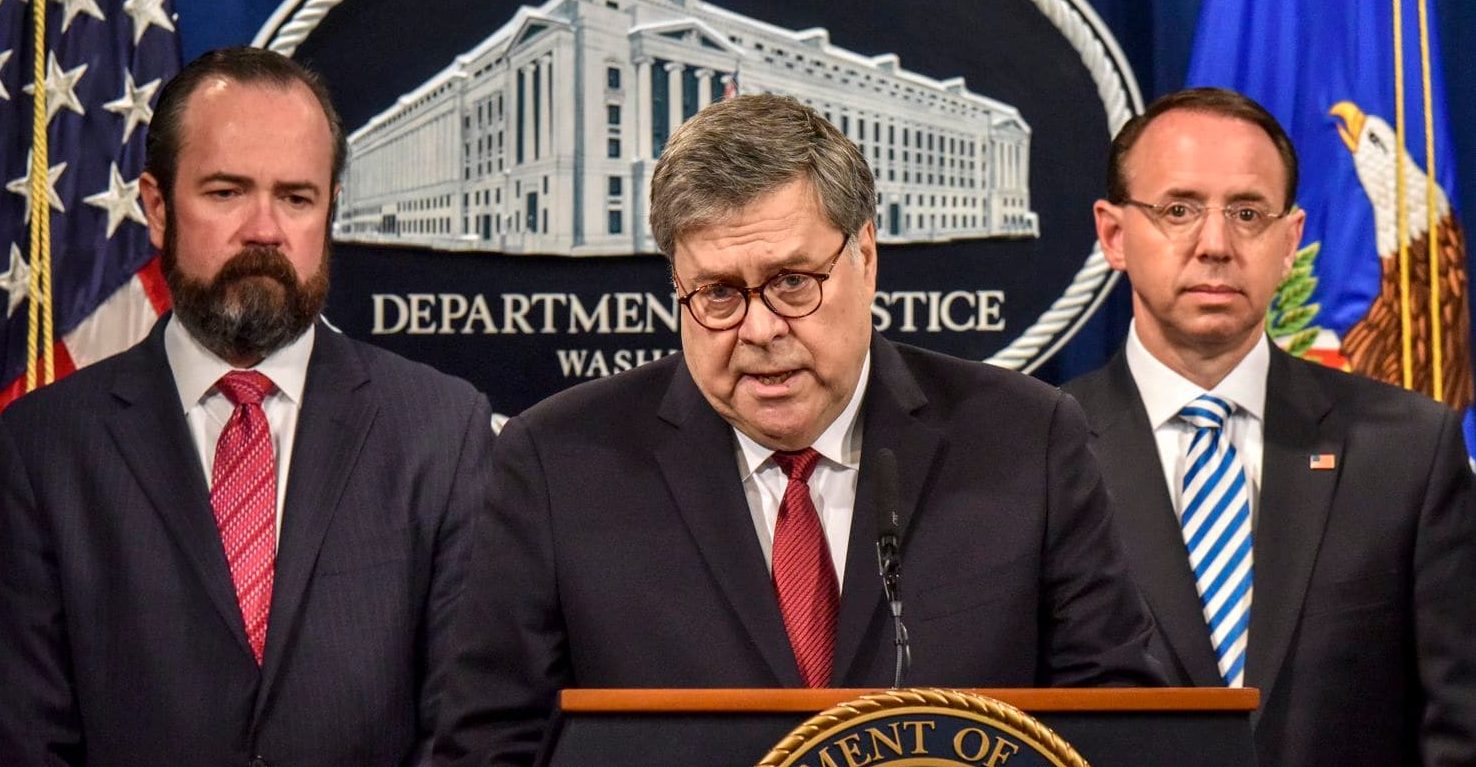Two weeks ago, the D.C. Circuit released an opinion about one of the hottest topics in Washington: the disclosure of grand jury material. In McKeever v. Barr, the court held that courts do not have the inherent authority to release information collected by a grand jury. The case had nothing to do with Special Counsel Robert Mueller or his report on the Russia investigation, but it will be a key defense in the Department of Justice’s arsenal as it faces off with congressional Democrats who object to Attorney General William Barr’s redactions.
The Opinion
The case had all of the trappings of a high drama, including a district judge reversal, a widespread circuit split, and a 2-1 opinion with a Trump appointee in the majority and an Obama appointee dissent.
The key question in McKeever was whether courts are bound by the explicit exceptions to the release of grand jury information laid out in Federal Rule of Criminal Procedure 6(e)(3) or whether courts have the power to release the information in other circumstances, including for historical significance. More simply, do courts have the power to go beyond the explicit exceptions in 6(e)(3)? In an opinion by Judge Ginsburg (joined by Judge Katsas and over a dissent from Judge Srinivasan), the D.C. Circuit said no.
The question came up because a historian, Stuart McKeever, wanted grand jury records from a 1957 case that may have been related to the sudden disappearance of a Columbia University professor—and critic of a Dominican Republic dictator—in 1956. McKeever argued that he should have access to the records because of their historical significance and the fact that anyone who was involved in the grand jury back then had since died, making the need for secrecy unnecessary.
The court disagreed on both points, first holding that “historical significance” was not one of the explicit exceptions in 6(e)(3), which means a court has no power to release material for that reason. Then the court pushed back on the notion that continued secrecy serves no purpose. Ginsburg wrote that privacy interests can persist after a person’s death. And even if privacy interests do not survive death, he said, if a grand jury witness knows beforehand that her testimony may get released—even after her death—the witness may be less forthcoming, which is ultimately detrimental to the justice process and flouts the intent of strict secrecy around grand juries.
Ginsburg acknowledged the opinion furthered an already existing circuit split with the Second, Seventh, and Eleventh Circuits agreeing that certain circumstances could warrant disclosure outside the explicit 6(e) exceptions and the Sixth and Eighth Circuits taking a narrower view.
Why does this matter now?
First, the Department of Justice was so pleased with the decision that it cited the opinion within two hours of its release in a district court filing seeking to block the release of grand jury materials in an unrelated case.
Second, Ginsburg wrote a page-and-a-half footnote discussing the court’s 1974 case Haldeman v. Sirica, which allowed “the disclosure of a sealed grand jury report to aid in the inquiry by the House Judiciary Committee into possible grounds for impeachment of President Nixon.” The majority was quick to criticize Haldeman as “ambiguous” and containing “no meaningful analysis” of Rule 6(e)’s terms, but ultimately concluded that the opinion allowed disclosure of grand jury testimony to Congress in aid of impeachment proceedings because it would fit squarely within a 6(e) exception that permits disclosure for “judicial proceedings.” The court reasoned that a Congressional impeachment was an acceptable “judicial proceeding” to trigger application of the exception.
Srinivasan dissented. He argued that the Haldeman court did not in fact rely on the “judicial proceeding” exception but rather based its decision on the inherent discretionary authority of the courts to determine disclosure.
The D.C. Circuit’s holding in McKeever is sure to have implications far beyond grand jury records from 1957. This case is going to be DOJ’s central defense in the near-certain upcoming fight over Attorney General William Barr’s 6(e)-based redactions to the Mueller report. Even before Barr’s release of the redacted report on Thursday (April 18), congressional Democrats have argued that the full, unredacted report should be released. Last week, the House Judiciary Committee authorized its chairman, Rep. Jerry Nadler (D-NY) to issue a subpoena for the full report. And some have argued that Barr should go to a judge himself and ask permission for grand jury information in the report to be released. This opinion shows why DOJ thinks it has a strong argument that Barr cannot do that—at least for now.
It may be that the only way to get a full unredacted version of the Mueller report is for Congress to open impeachment proceedings—a decision that is a political calculation rather than a legal one.
There will be many battles over what is—and what is not—apparent in the redacted version of the Mueller report. But one thing is clear. If Congress wants a shot at the full, unredacted version, it must be prepared to defend against a DOJ that will hang its hat on this opinion from the second most important court in the land.
![]()

